
We kindly inform you that, as long as the subject affiliation of our 300.000+ articles is in progress, you might get unsufficient or no results on your third level or second level search. In this case, please broaden your search criteria.

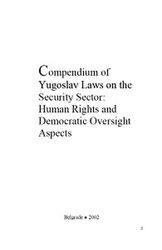
This book explores the challenges of establishing democratic and civilian control over security structures in countries transitioning to democracy, with a specific focus on the Federal Republic of Yugoslavia (FRY) and the Republic of Serbia. Security structures, including the armed forces, police, and interior ministry, often pose significant obstacles to democratization by operating autonomously or disproportionately consuming state resources. The reform of these structures must balance the creation of efficient institutions with respect for fundamental human rights, given their authority to use force. Effective democratic control requires a clear constitutional and legal framework that institutionalizes practices and relationships among key actors. However, the research reveals inconsistencies in the legal and constitutional frameworks at federal and republic levels, ambiguous legislation, lack of transparency in decision-making, inadequate protection of human rights, and unchecked executive use of security institutions. Undertaken as part of a broader project by the Geneva Centre for the Democratic Control of Armed Forces (DCAF) and the East-West Institute (EWI), the study assesses legal texts and offers recommendations for comprehensive security sector reform. The work, informed by contributions from prominent scholars and civil society institutions, underscores the need for legislative corrections to prevent misuse of security apparatus, as seen under the Milosevic regime.
More...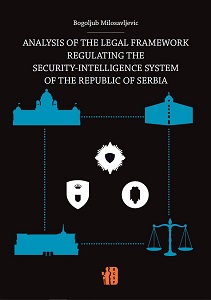
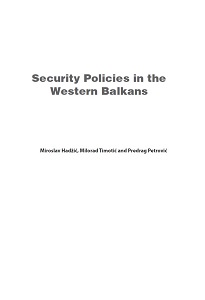
The document "Security Policies in the Western Balkans" provides a comprehensive analysis of the strategic-doctrinal frameworks of several countries in the region, including Albania, Bosnia and Herzegovina, Croatia, Kosovo, Macedonia, Montenegro, and Serbia. It examines the development, adoption, and content of key strategic documents such as National Security Strategies, Defence Strategies, and Strategic Defence Reviews.
More...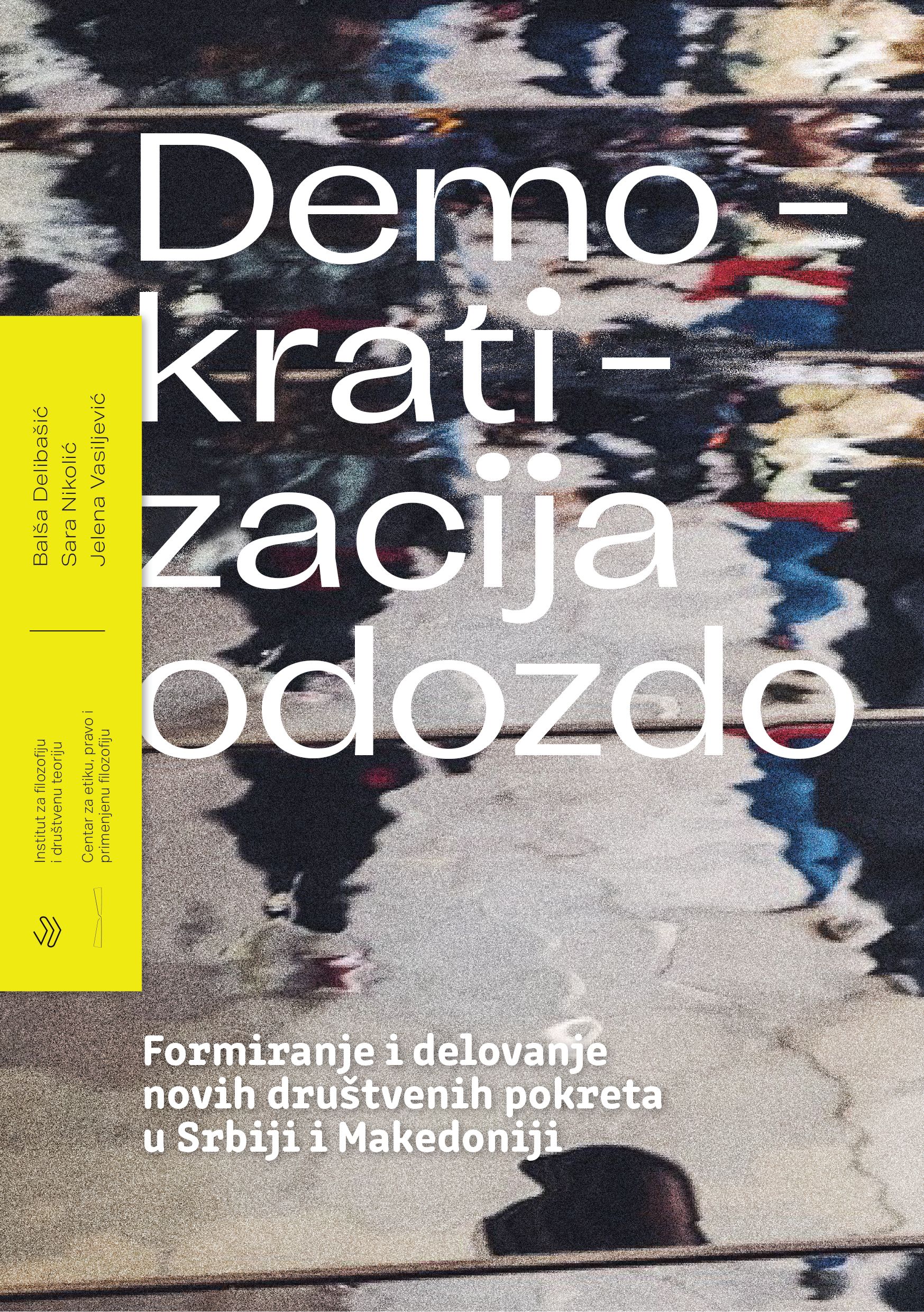
The main goal of this study is the mapping of new social movements in the Western Balkans. Although the entire region was the scene of diverse and intense protest and activist initiatives - from civil plenums in Bosnia and Herzegovina, through the expansion and strengthening of the Right to the City movement in Croatia and Serbia, to the Colorful Revolution in Macedonia - professional and academic interest in these social processes it is still in its infancy, and there are almost no comparative studies. This study aims to respond to that gap by systematizing some of the insights the authors have come to by researching contemporary movements in Macedonia and Serbia - without the ambition to offer a rounded whole and ready-made conclusions, but rather with the intention of opening up important questions and calling for further research. on the topic of the democratic potential of social movements in the Western Balkans.
More...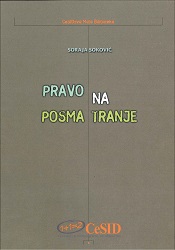
Elections are the way through which citizens deny or give their trust to a certain government. Given that the election process does not only include the expression of the will of the voters, but also a whole series of procedural rules through which this will is expressed and which must be respected as such, in the last few decades the need to observe the election as one of the ways to protect the electoral right of the voters has arisen.
More...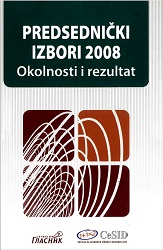
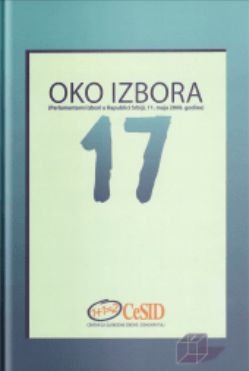
How are the May 2008 parliamentary elections different from the previous ones, if at all? The May elections were characterized, first of all, by a fierce struggle for power, which for many political parties was almost similar to the one in the fall of 2000 (to be or not to be!). There was a negative motivation at work - most parties were less focused on electoral success and more on the fear of defeat, i.e. unfulfilled expectations of supporters and party leaders. The sharpness of the fight itself led to a dirty election campaign, which was also different from the previous ones in this respect. In addition, three ideological phenomena - which were the focus of the campaign, although they have long been the reasons for the split in the political scene of Serbia - for the first time played a decisive role in the electoral decisions of citizens. Among them, two experienced their zenith, while one definitely became dominant: "Kosovo patriotism" had a significant impact on votes for the last time, and the same applies to the attitude towards the era of Slobodan Milošević's rule; however, pro-European values became dominant in the voting mass, which turned into a factor that will more permanently determine electoral preferences. At the same time, the left (of any kind) once again dominated the Serbian political scene. Finally, political parties once again gained a decisive role in the formation of ruling coalitions.
More...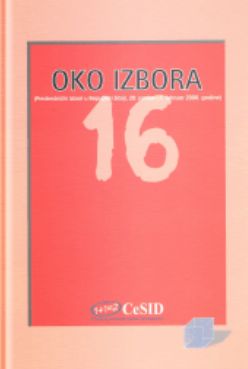
The presidential elections in Serbia were announced at the time of the finalization of the long-term efforts of the Kosovo Albanians, coordinated with a number of major powers, to achieve independence. At the same time, Serbia was burdened with sloppy results in its approach to the European Union. Although these two processes more permanently characterize the Serbian political scene, there is no doubt that any questioning of the determination of the public opinion of the citizens of Serbia is used to express the party's position towards these politically crucial issues, especially when one of these issues enters the final phase. And while the constitutional referendum at the end of 2006 apparently passed without activating these two focal points of Serbian politics, because all the main parties primarily cared about the Constitution "passing" (and it could "pass" party prequalifications only with the inclusion of the Kosovo theme in the constitutional preamble), the presidential elections were a real opportunity to escalate the issues that the parties considered to be decisive for the future of Serbia - "Both Kosovo and Europe", i.e. "Either Kosovo or Europe". Sociologically speaking, this time too we are witnessing the colonizing character of our political class, that is, its effort to turn the main political issue into the main social issue, which definitively ended the occupation of civility in Serbia. By all accounts, the political class has succeeded in its plan - civil society has been captured!
More...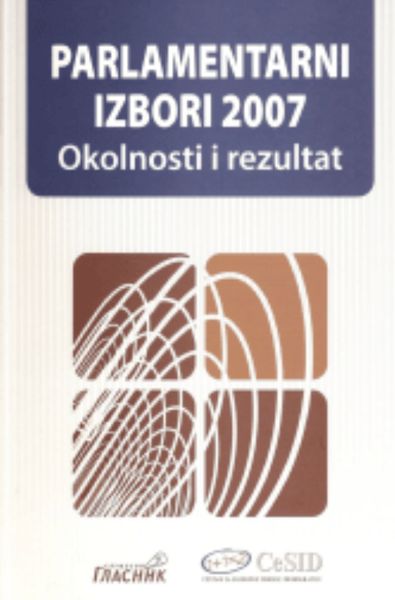
The elections at the beginning of 2007 did not change the balance of power at the global level: the liberal democratic parties won the votes of the social national parties by three to two. In fact, the line of party divisions from earlier years has been maintained, marked by two themes, the theme of nationalism and the theme of standards, i.e. quality of life. Certain movements within the liberal-democratic bloc prolonged the formation of the government, and at one point threatened the establishment of a different constellation of political power than the one the voters had given with their votes. The question is how these elections differ from the previous ones and what are the differences. The paper then gives indications from the appendices in this collection that deal with exactly those issues.
More...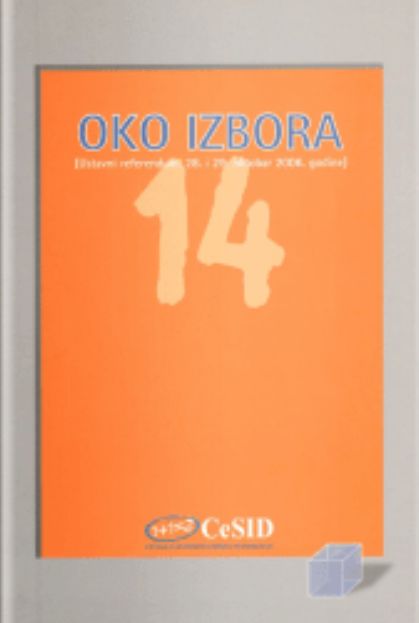
Two questions determined the fate of the new Constitution in the fall of 2006. Did Serbia need a new Constitution? It is! It was necessary to make up for what was missed and to break the Serbian understanding of political dynamics according to which there is always time for everything and according to which what can be done both today and tomorrow should be left for tomorrow, regardless of the fact that today is cheaper and tomorrow is more expensive. (Milošević started his transition with his constitution, after all, like all transitional countries. Democratic Serbia waited five years to start its transition with a consensus-constitution, i.e. an agreement with the political parties of Milosevic's provenance.)
More...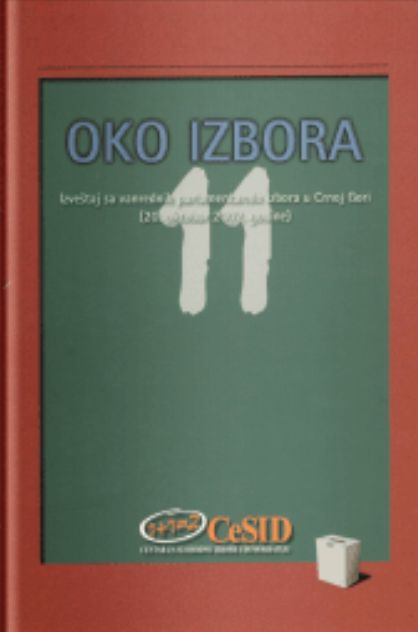
The Center for Free Elections and Democracy (CeSID) from Belgrade and the Center for Election Monitoring (CEMI) from Podgorica, continuing their successful cooperation on the undertaking of non-partisan, civil and neutral election observation in both Republics, jointly organized the monitoring of extraordinary parliamentary elections in Montenegro and local elections in Podgorica and Tivat held on October 20, 2002.
More...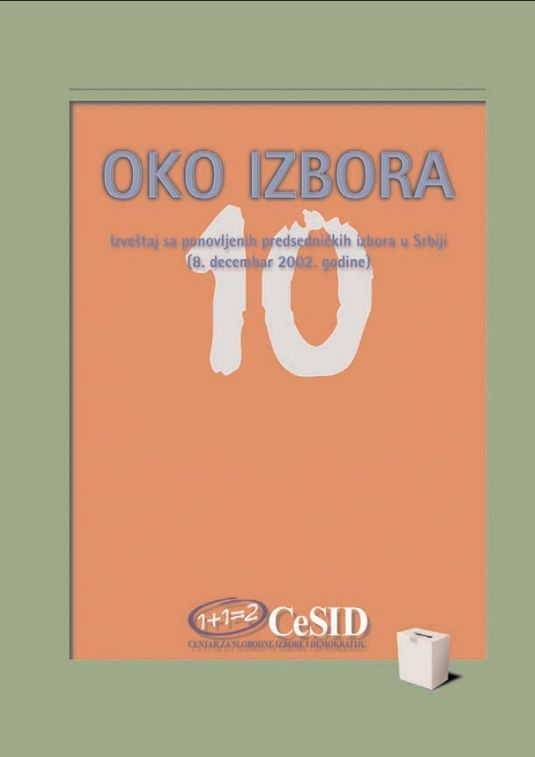
After the unsuccessful elections for the President of the Republic, held on September 29 (first election round) and October 13 (second election round), the Speaker of the National Assembly of the Republic of Serbia announced, on November 6, new presidential elections for December 8, 2002. The Center for Free Elections and Democracy (CeSID) started its activities on the day the elections were announced, monitoring everything that makes up the election process, until the moment when the Republic Election Commission (REC) announced the final election results, i.e. December 11, 2002.
More...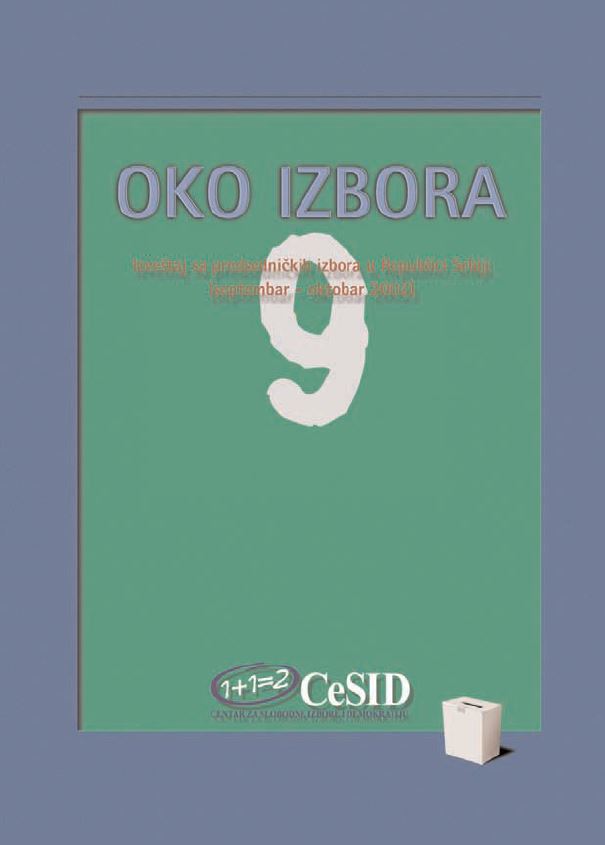
With the declaration of citizens on September 29 (first election round) and October 13, 2002 (second election round) for the President of the Republic of Serbia, the political life of Serbia entered a qualitatively new phase of development. After a decade of elections that were significantly marked by an autocratic political order, electoral irregularities and civil protests that followed the post-election periods, these elections were conducted in a significantly different political and social conditions.
More...
Preparations for local elections for councilors in 19 Montenegrin municipalities (excluding Podgorica and Herceg Novi), held on May 15, 2002, took place in conditions and climate that corresponded more to a referendum of citizens than to regular elections for local government representatives. According to the expectations of politicians and the media, expressed during the pre-election period, these elections were supposed to answer at least two questions: what is the attitude of the citizens of Montenegro towards the Agreement on the Basic Principles for Reorganizing Relations between Serbia and Montenegro and what is the relationship between political forces in light of the parliamentary crisis in Montenegro.
More...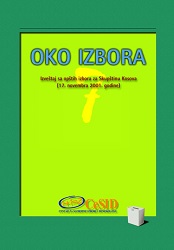
The general elections for the Assembly of Kosovo, held on October 17, 2001, will be remembered, among other things, for the fact that, for the first time in the history of domestic parliamentarism, the organization and implementation of elections in the FRY was entrusted to an international organization.
More...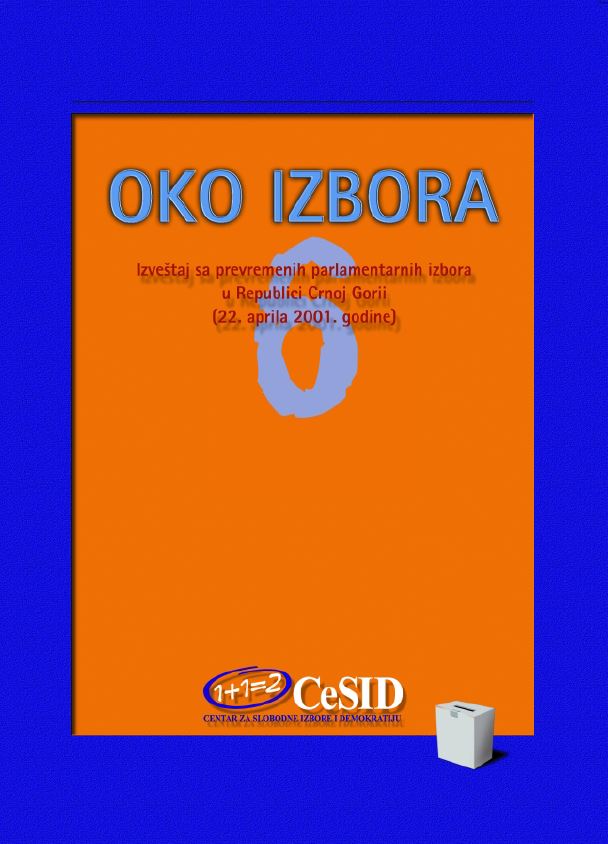
Continuing the tradition of cooperation in the field of non-partisan and neutral election observation, the Center for Free Elections and Democracy from Belgrade and the Monitoring Center from Podgorica jointly organized the observation of early parliamentary elections in Montenegro held on April 22, 2001.
More...
Early elections for members of the National Assembly of the Republic of Serbia, held on December 23, 2000, took place in conditions that differed in many ways from the conditions in which elections were held in the past decade, especially from the conditions in which the September elections were held.
More...
In this report, About Election 12, we present data and observations about the repeated presidential elections, held on November 16, 2003. The report consists of contributions from CeSID's volunteers, associates and experts, grouped into several thematic units.
More...